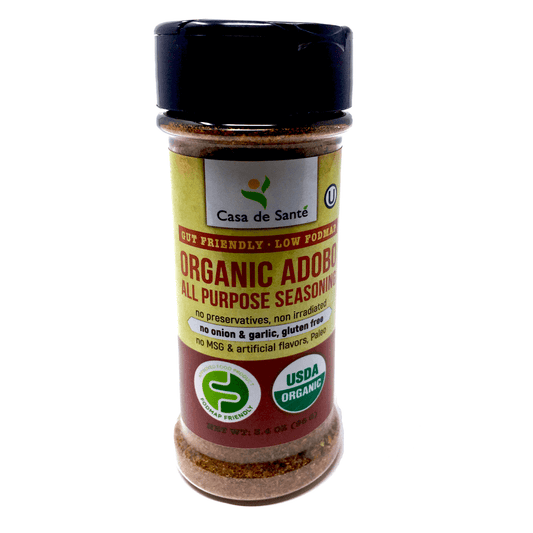GI-Basic Profile By US Biotek vs 96 Igg Gastrointestinal Portfolio By Alletess Medical Laboratory
In the field of gastrointestinal health testing, two prominent options are the GI-Basic Profile by US Biotek and the 96 Igg Gastrointestinal Portfolio by Alletess Medical Laboratory. These tests provide valuable insights into the functioning of the gastrointestinal system by analyzing the presence of specific antibodies. By understanding the key features, methodologies, accuracy, reliability, and how to interpret the results of each test, individuals can make informed decisions about which testing option suits their needs.
Understanding the GI-Basic Profile and 96 Igg Gastrointestinal Portfolio
The GI-Basic Profile by US Biotek is a comprehensive test that assesses various aspects of gastrointestinal health. It examines the presence of different antibodies, including those associated with gluten sensitivity, parasites, and specific food intolerances. These antibodies are indicators of immune activation in response to certain triggers. By identifying the specific triggers that the immune system is reacting to, individuals can make targeted dietary and lifestyle changes to improve their gastrointestinal health.
The GI-Basic Profile is a valuable tool for healthcare professionals in diagnosing and treating gastrointestinal disorders. By analyzing the presence of antibodies, the test can provide insights into the underlying causes of symptoms such as bloating, diarrhea, and abdominal pain. This information allows for a more personalized approach to treatment, as healthcare professionals can recommend specific dietary modifications and targeted therapies based on the individual's unique antibody profile.
Furthermore, the GI-Basic Profile can also help identify potential cross-reactive foods, which are foods that may trigger an immune response due to their similarities to other known allergens. This knowledge is crucial in developing a comprehensive treatment plan for individuals with complex gastrointestinal issues.
On the other hand, the 96 Igg Gastrointestinal Portfolio by Alletess Medical Laboratory is also a widely used test that analyzes IgG antibodies associated with gastrointestinal conditions. This extensive panel measures the immune response against a larger number of foods and antigens. It provides a more comprehensive picture of an individual's immune reactivity, assisting in the identification of potential food sensitivities and intolerances.
Similar to the GI-Basic Profile, the 96 Igg Gastrointestinal Portfolio can help healthcare professionals in diagnosing and managing gastrointestinal disorders. The test covers a wide range of foods and antigens, allowing for a thorough evaluation of an individual's immune system response. By identifying specific food triggers, healthcare professionals can recommend personalized dietary modifications to alleviate symptoms and improve overall gastrointestinal health.
What is the GI-Basic Profile by US Biotek?
The GI-Basic Profile by US Biotek is a panel of tests that analyze various antibodies linked to gastrointestinal health. It includes assessments for gluten sensitivity, cross-reactive foods, and parasites. By detecting heightened levels of these antibodies, healthcare professionals can gain insights into potential triggers of gastrointestinal discomfort and inflammation. This test is particularly useful for individuals experiencing chronic digestive issues.
In addition to assessing antibodies associated with gluten sensitivity, the GI-Basic Profile also examines antibodies related to cross-reactive foods. Cross-reactivity occurs when the body's immune system mistakenly identifies a harmless substance as harmful, leading to an immune response. By identifying cross-reactive foods, healthcare professionals can guide individuals in avoiding these triggers and managing their gastrointestinal symptoms effectively.
The GI-Basic Profile also includes assessments for parasites, which can cause a range of gastrointestinal symptoms such as diarrhea, abdominal pain, and weight loss. By detecting the presence of antibodies associated with parasites, healthcare professionals can diagnose and treat parasitic infections promptly. This information allows for targeted interventions, such as anti-parasitic medications, to eliminate the parasites and alleviate gastrointestinal symptoms.
An Overview of the 96 Igg Gastrointestinal Portfolio by Alletess Medical Laboratory
The 96 Igg Gastrointestinal Portfolio by Alletess Medical Laboratory is a comprehensive test that examines IgG antibodies associated with gastrointestinal conditions. This panel includes an extensive list of foods and antigens, helping healthcare professionals determine potential triggers for food sensitivities and intolerances. The test covers a broad range of foods and can provide valuable information for individuals seeking to optimize their diet and improve their gastrointestinal health.
In addition to assessing antibodies associated with common gastrointestinal triggers like gluten and dairy, the 96 Igg Gastrointestinal Portfolio also includes assessments for antibodies related to a wide variety of other foods. This comprehensive approach allows healthcare professionals to identify specific food sensitivities that may be contributing to an individual's gastrointestinal symptoms. By eliminating these trigger foods from the diet, individuals can experience relief from symptoms such as bloating, gas, and diarrhea.
The 96 Igg Gastrointestinal Portfolio also evaluates antibodies associated with other potential triggers, such as environmental allergens and additives commonly found in processed foods. This broader assessment helps healthcare professionals identify additional factors that may be contributing to an individual's gastrointestinal issues. By addressing these triggers, individuals can achieve optimal gastrointestinal health and improve their overall well-being.
Key Features of Both Tests
When it comes to assessing gastrointestinal health through antibody analysis, both the GI-Basic Profile and the 96 Igg Gastrointestinal Portfolio offer valuable insights. However, these two tests differ in various ways, providing unique advantages for individuals seeking to improve their gut health.
Unique Aspects of the GI-Basic Profile
The GI-Basic Profile stands out with its targeted assessments for gluten sensitivity, cross-reactive foods, and parasites. This specificity allows individuals to identify potential triggers that are often associated with gastrointestinal symptoms. By zeroing in on these particular factors, individuals can make targeted dietary changes to alleviate discomfort and improve overall gut health.
Let's delve deeper into the unique aspects of the GI-Basic Profile:
1. Gluten Sensitivity: This test assesses the body's immune response to gluten, a protein found in wheat, barley, and rye. By identifying gluten sensitivity, individuals can make informed decisions about their diet and potentially alleviate symptoms such as bloating, abdominal pain, and fatigue.
2. Cross-Reactive Foods: In addition to gluten, the GI-Basic Profile evaluates immune reactivity to cross-reactive substances. These substances can trigger similar reactions to gluten, even in individuals who do not have celiac disease. By identifying cross-reactive foods, individuals can avoid potential triggers and manage their gastrointestinal symptoms more effectively.
3. Parasite Assessment: Parasitic infections can wreak havoc on the gastrointestinal system, leading to symptoms such as diarrhea, abdominal pain, and weight loss. The GI-Basic Profile includes a thorough evaluation for parasites, allowing individuals to identify and address these infections promptly.
Distinctive Characteristics of the 96 Igg Gastrointestinal Portfolio
The 96 Igg Gastrointestinal Portfolio offers an extensive range of food and antigen assessments, providing healthcare professionals with a comprehensive view of an individual's immune reactivity. This test goes beyond gluten and cross-reactive substances, enabling the identification of potential sensitivities to a wider array of foods.
Let's explore the distinctive characteristics of the 96 Igg Gastrointestinal Portfolio:
1. Broad Food Assessment: This test evaluates immune reactivity to a wide range of foods, including dairy, eggs, nuts, and various fruits and vegetables. By identifying specific food sensitivities, individuals can modify their diets to mitigate adverse reactions and promote digestive well-being.
2. Antigen Assessment: In addition to food sensitivities, the 96 Igg Gastrointestinal Portfolio assesses immune reactivity to various antigens. Antigens are substances that can trigger an immune response, potentially leading to gastrointestinal symptoms. By identifying specific antigens that individuals may be reactive to, healthcare professionals can provide targeted advice to improve gut health.
3. Comprehensive Analysis: With its wide range of assessments, the 96 Igg Gastrointestinal Portfolio offers a comprehensive analysis of an individual's immune reactivity. This comprehensive approach allows healthcare professionals to develop personalized treatment plans that address specific sensitivities and promote optimal gastrointestinal function.
In conclusion, while both the GI-Basic Profile and the 96 Igg Gastrointestinal Portfolio assess gastrointestinal health through antibody analysis, they offer unique features that cater to different needs. The GI-Basic Profile focuses on targeted assessments for gluten sensitivity, cross-reactive foods, and parasites, while the 96 Igg Gastrointestinal Portfolio provides a broader range of food and antigen assessments. By choosing the test that aligns with their specific requirements, individuals can gain valuable insights into their gut health and make informed decisions to improve their overall well-being.
Comparing the Methodologies
The methodologies employed by the GI-Basic Profile and the 96 Igg Gastrointestinal Portfolio differ in how they assess an individual's immune reactivity to various triggers.
Testing Method Used in GI-Basic Profile
The GI-Basic Profile utilizes an enzyme-linked immunosorbent assay (ELISA) to measure IgG antibodies associated with gluten sensitivity, cross-reactive foods, and parasites. This test provides quantitative results by determining the concentration of specific antibodies present in the blood sample.
Approach Adopted by the 96 Igg Gastrointestinal Portfolio
The 96 Igg Gastrointestinal Portfolio uses a similar ELISA methodology to assess immune reactivity but focuses on a broader range of antigens. By testing for IgG antibodies against a comprehensive list of foods, healthcare professionals can identify potential triggers for food sensitivities and intolerances.
Analyzing the Accuracy and Reliability
Accurate and reliable testing methods are essential in the field of gastrointestinal health. Both the GI-Basic Profile and the 96 Igg Gastrointestinal Portfolio offer valuable insights into an individual's gastrointestinal health by examining antibody levels associated with specific triggers.
Accuracy of the GI-Basic Profile
The GI-Basic Profile is known for its accuracy in detecting IgG antibodies related to gluten sensitivity, cross-reactive foods, and parasites. The ELISA methodology employed in this test provides quantitative results, allowing healthcare professionals to interpret the antibody levels precisely. This accuracy enables individuals to make targeted dietary changes based on reliable test results.
Reliability of the 96 Igg Gastrointestinal Portfolio
The 96 Igg Gastrointestinal Portfolio is also recognized for its reliability in assessing IgG antibody levels associated with gastrointestinal conditions. The extensive panel of tests offers a comprehensive analysis of immune reactivity to a wide range of foods, allowing for a more comprehensive understanding of potential triggers. The reliable results assist healthcare professionals in providing appropriate guidance for improving gastrointestinal health.
Interpreting the Results
Understanding the results of the GI-Basic Profile and the 96 Igg Gastrointestinal Portfolio is essential for individuals looking to optimize their gastrointestinal health.
Understanding the GI-Basic Profile Results
When interpreting the results of the GI-Basic Profile, healthcare professionals focus on the antibody levels associated with gluten sensitivity, cross-reactive foods, and parasites. Elevated antibody levels in these areas highlight potential triggers that could be contributing to gastrointestinal symptoms and discomfort. Interpreting these results in conjunction with an individual's symptoms allows healthcare professionals to provide targeted recommendations for dietary modifications.
Deciphering the 96 Igg Gastrointestinal Portfolio Results
Results from the 96 Igg Gastrointestinal Portfolio display antibody levels associated with a wide array of foods and antigens. Healthcare professionals analyze these results, paying attention to any elevated antibody levels that may indicate food sensitivities or intolerances. By deciphering the specific foods triggering an immune response, individuals can modify their diets to reduce inflammation and improve their gastrointestinal health.
Conclusion
The GI-Basic Profile by US Biotek and the 96 Igg Gastrointestinal Portfolio by Alletess Medical Laboratory are valuable testing options for individuals seeking insights into their gastrointestinal health. Understanding the unique features, methodologies, accuracy, reliability, and interpretation of results for each test allows individuals to make informed decisions about which option is best suited to their needs. By harnessing this valuable information, individuals can take proactive steps towards improving their gastrointestinal health and overall well-being.
























